Find Help
More Items From Ergsy search
-
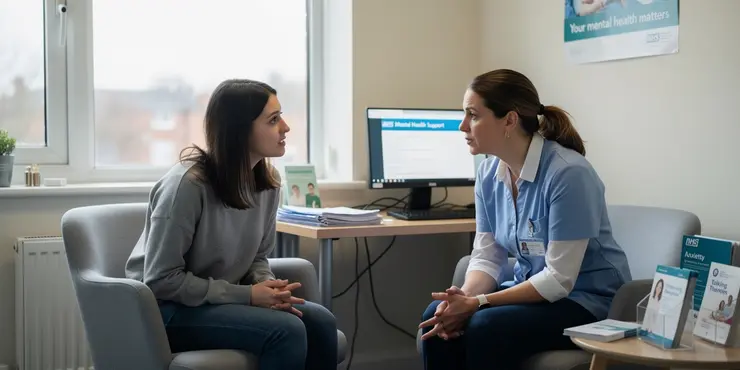
Anxiety | NHS
Relevance: 100%
-
How is health-related anxiety different from general anxiety?
Relevance: 97%
-
What is health-related anxiety?
Relevance: 95%
-
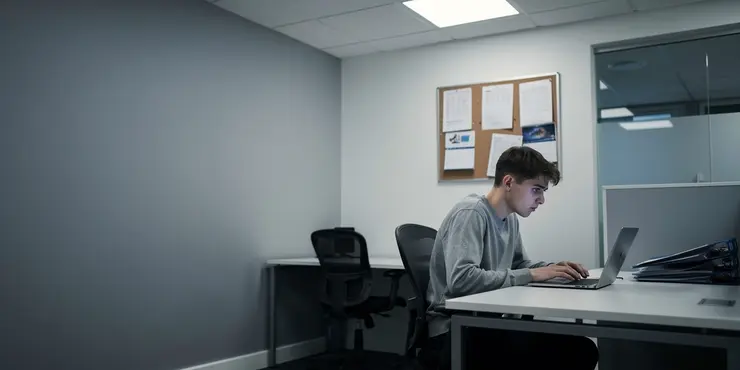
Anxiety in young people
Relevance: 94%
-
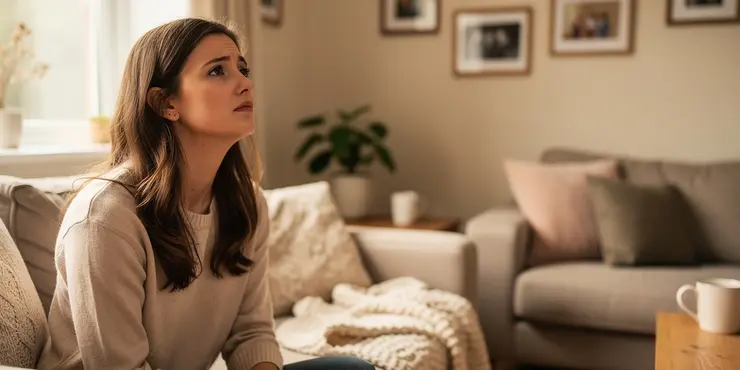
Coping with Stress and Anxiety
Relevance: 93%
-
What is health related anxiety?
Relevance: 90%
-
Is health-related anxiety a common condition?
Relevance: 90%
-
What causes health-related anxiety?
Relevance: 90%
-
How is health-related anxiety diagnosed?
Relevance: 89%
-
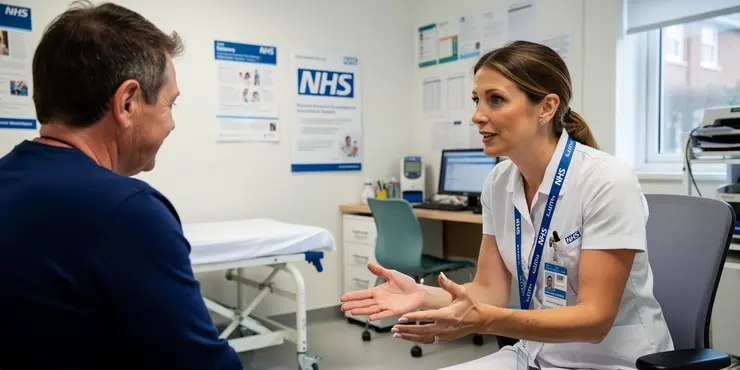
Treating anxiety and depression - www.slam.nhs.uk
Relevance: 88%
-
Is medication effective for health-related anxiety?
Relevance: 88%
-
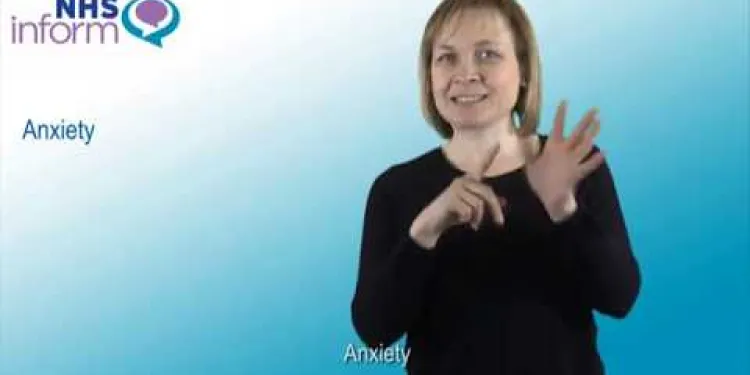
Generalised anxiety disorder (GAD)
Relevance: 86%
-
What are common treatments for health-related anxiety?
Relevance: 86%
-
Are there self-help strategies for managing health-related anxiety?
Relevance: 86%
-
Can health-related anxiety affect relationships?
Relevance: 85%
-
What are common symptoms of health-related anxiety?
Relevance: 85%
-
Can health-related anxiety cause physical symptoms?
Relevance: 83%
-
Why is reassurance not always helpful for health-related anxiety?
Relevance: 83%
-
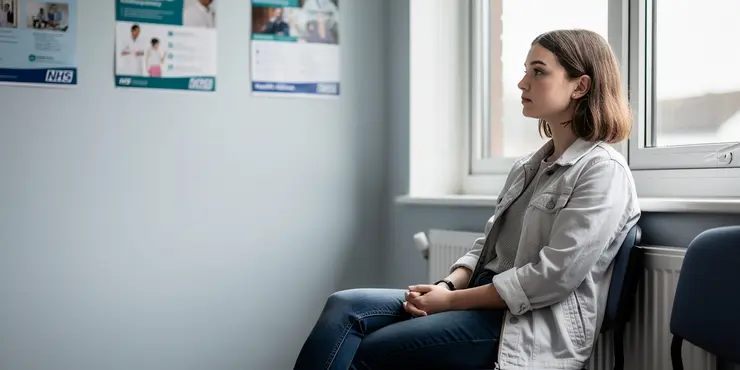
Short Films About Mental Health - Anxiety
Relevance: 82%
-
Can children and teens have health-related anxiety?
Relevance: 82%
-
Is it possible to fully recover from health-related anxiety?
Relevance: 82%
-
Can lifestyle changes help with health-related anxiety?
Relevance: 82%
-
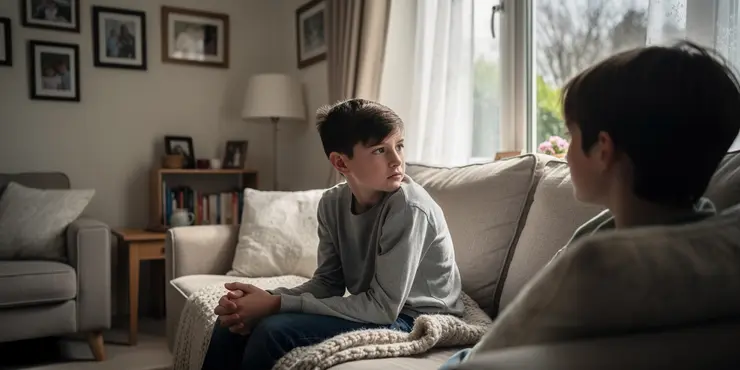
What type of anxiety do children and teenagers experience?
Relevance: 82%
-
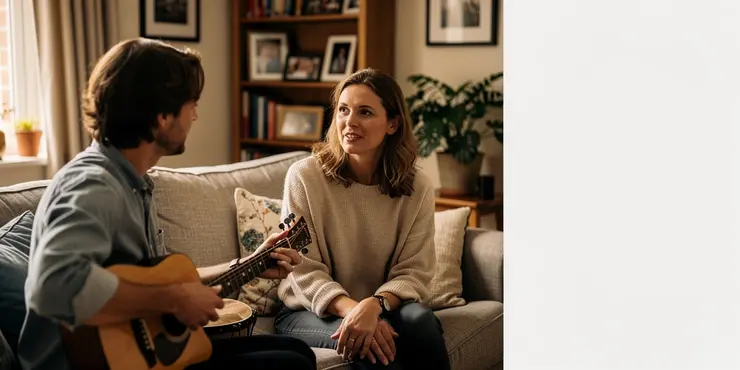
Can Music Therapy Be the Key to Reducing Anxiety?
Relevance: 80%
-
Can health-related anxiety lead to actual health problems?
Relevance: 80%
-
What should someone do if they suspect they have health-related anxiety?
Relevance: 79%
-
How does cognitive-behavioral therapy help with health-related anxiety?
Relevance: 79%
-
What role does the internet play in health-related anxiety?
Relevance: 78%
-
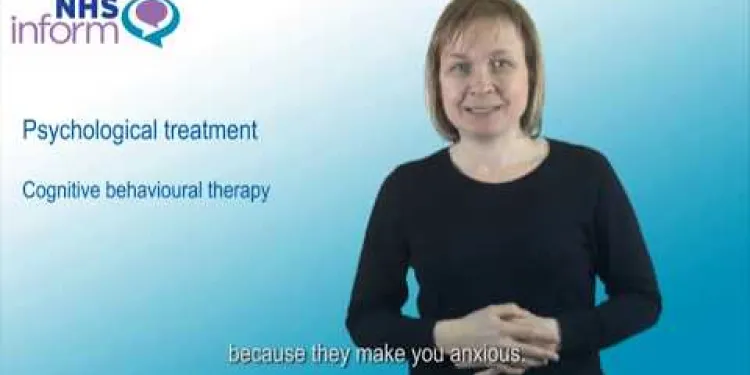
Treating generalised anxiety disorder (GAD)
Relevance: 77%
-
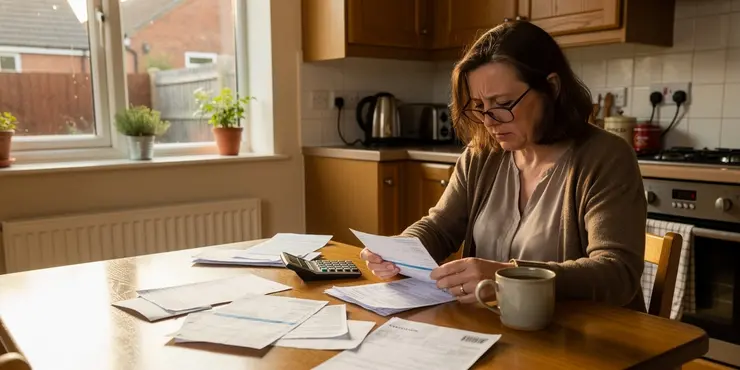
Survey Reveals Increasing Financial Anxiety Among UK Households
Relevance: 77%
-
How can family and friends support someone with health-related anxiety?
Relevance: 76%
-
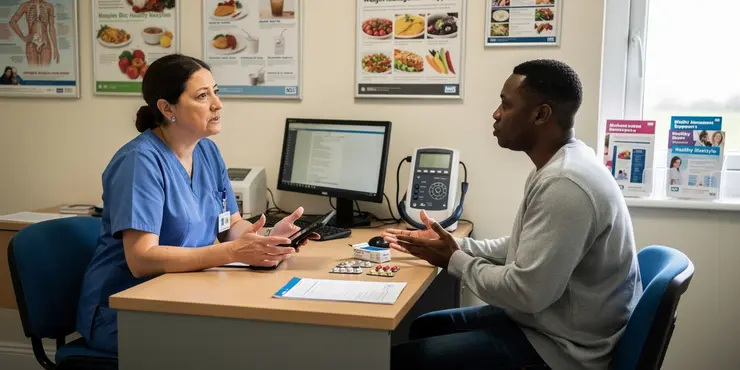
Can weight loss drugs lead to mood changes or anxiety?
Relevance: 74%
-
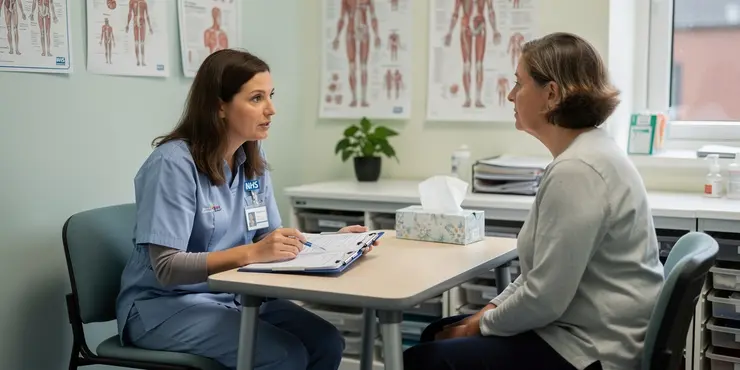
Can anxiety cause heart attack-like symptoms?
Relevance: 61%
-
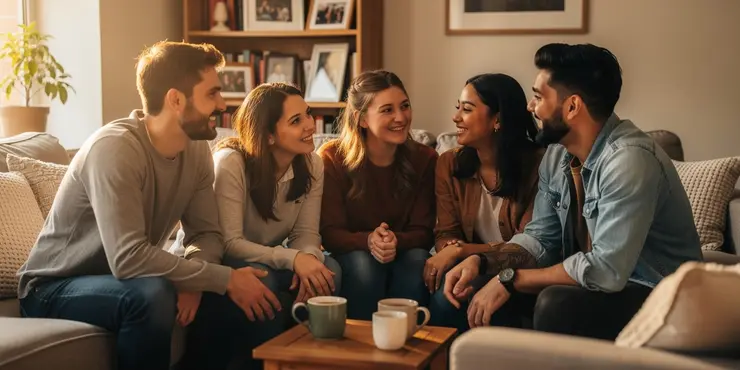
New Mental Health Strategy Launched to Address Youth Anxiety Epidemic
Relevance: 61%
-
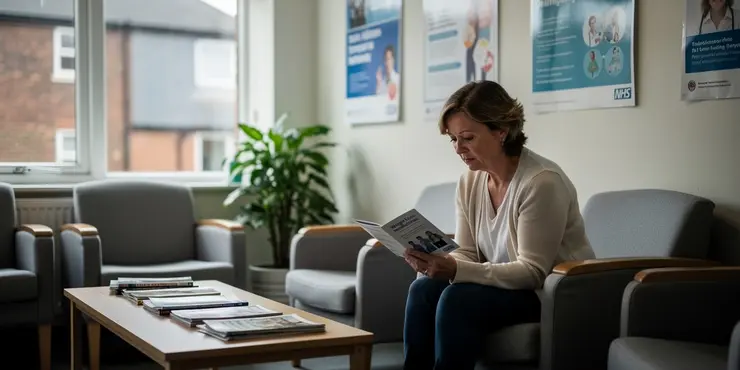
Can weight loss drugs lead to mood changes or anxiety?
Relevance: 39%
-
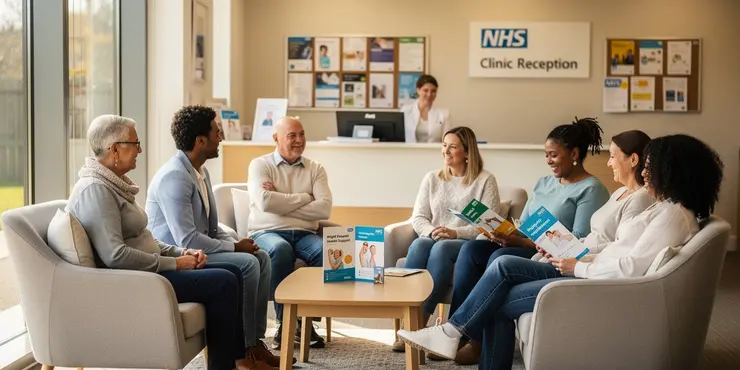
Can weight loss drugs lead to mood changes or anxiety?
Relevance: 39%
-

Can weight loss drugs lead to mood changes or anxiety?
Relevance: 39%
-
Can eating disorders occur with other mental health conditions?
Relevance: 29%
-
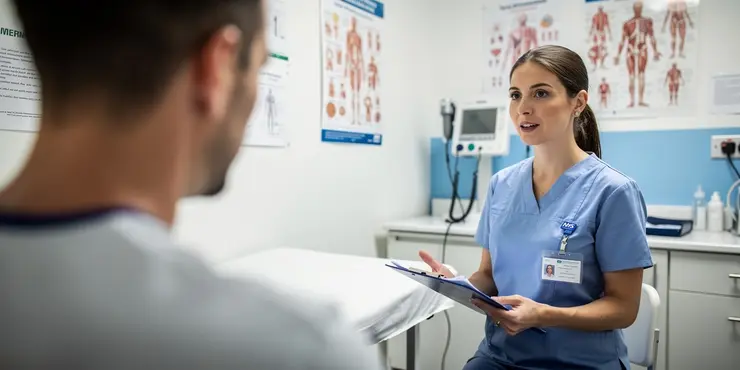
Are there health benefits to using cannabis extract?
Relevance: 28%
-
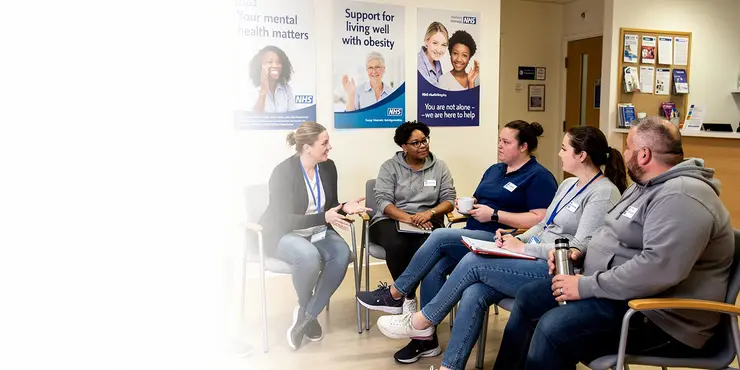
What is the impact of obesity on mental health?
Relevance: 28%
Anxiety | NHS
What is Anxiety?
Anxiety is a feeling of unease, such as worry or fear, that can range from mild to severe. In the United Kingdom, anxiety is a common mental health issue that affects millions of people each year. Anxiety can manifest in various ways, including physical symptoms like increased heart rate, sweating, and trembling, as well as psychological symptoms like constant worry and fear.
Causes of Anxiety
Anxiety disorders can be caused by a range of factors, including genetic predisposition, environmental stressors, and lifestyle factors. Traumatic events, such as the loss of a loved one, serious health concerns, or ongoing stress from work or relationships, can trigger anxiety. The NHS also notes that certain medical conditions and substance abuse can contribute to the development of anxiety disorders.
Types of Anxiety Disorders
There are several types of anxiety disorders recognized by healthcare professionals. Generalised Anxiety Disorder (GAD) involves chronic, excessive worry about various aspects of daily life. Panic Disorder is characterized by sudden, intense periods of fear known as panic attacks. Other types include Social Anxiety Disorder, which involves extreme fear of social situations, and Specific Phobias, where particular objects or situations cause irrational fear.
Treatment and Support
The NHS offers a range of treatments for anxiety. Psychological therapies, such as Cognitive Behavioural Therapy (CBT), are highly effective for many people. Medications, including antidepressants and anti-anxiety drugs, can also be prescribed. Self-help strategies, like mindfulness and relaxation techniques, are beneficial in managing symptoms. Support groups and online resources provide additional help for those living with anxiety.
When to Seek Help
If anxiety is affecting your daily life, it's important to seek help. The NHS recommends speaking to your GP if you experience persistent feelings of anxiety that interfere with your work, social life, or general mental well-being. Early intervention can lead to better outcomes, and a healthcare professional can guide you to the appropriate treatment options.
For more information, resources, and support, visit the NHS website.
Anxiety | NHS
What is Anxiety?
Anxiety is when you feel worried or scared. This can be a small feeling or a very strong one. Many people in the UK feel anxiety. It can make your heart beat faster, make you sweat, and make you shake. You might also feel worried all the time.
Causes of Anxiety
Many things can cause anxiety. It can run in families, or be triggered by stress in your life. Losing someone you love or having problems at work or home can make anxiety worse. Sometimes, health problems or using drugs can cause anxiety too.
Types of Anxiety Disorders
There are different kinds of anxiety. Generalised Anxiety Disorder means you worry about lots of things all the time. Panic Disorder means you have panic attacks, which are times when you feel very scared for no reason. Social Anxiety Disorder means you are very afraid of talking to people or being in groups. Some people have Specific Phobias, which means they are very scared of specific things.
Treatment and Support
The NHS can help you if you have anxiety. Talking therapies like Cognitive Behavioural Therapy (CBT) can help you feel better. Sometimes, doctors give medicine to help with anxiety. You can also try things like deep breathing or being mindful to help yourself. There are groups and online places where you can find more help too.
When to Seek Help
If anxiety stops you from living your life, it's important to get help. You should talk to your doctor if you feel anxious a lot and it makes it hard to work or be with friends. Getting help early can make things better. A doctor can tell you what treatments are best for you.
For more information and help, visit the NHS website.
Frequently Asked Questions
What is anxiety?
Anxiety is a feeling of unease, such as worry or fear, that can be mild or severe. Everyone experiences anxiety at some point in their life.
What are the common symptoms of anxiety?
Common symptoms of anxiety include feeling restless or on edge, being easily fatigued, having difficulty concentrating, irritability, muscle tension, and sleep disturbances.
What causes anxiety?
Anxiety can be caused by a variety of factors including genetics, brain chemistry, medical conditions, stressful life events, and substance abuse.
How is anxiety diagnosed?
Anxiety is diagnosed through a combination of a physical exam, discussions about your symptoms, and a psychological evaluation by a healthcare professional.
What are the treatment options for anxiety?
Treatment options include lifestyle changes, self-help methods, talking therapies like cognitive behavioural therapy (CBT), and medications such as antidepressants or anti-anxiety drugs.
Can lifestyle changes help manage anxiety?
Yes, lifestyle changes such as regular exercise, a healthy diet, good sleep hygiene, and mindfulness practices can help manage anxiety.
What is Cognitive Behavioural Therapy (CBT)?
CBT is a talking therapy that can help manage problems by changing the way you think and behave. It is commonly used to treat anxiety.
How can mindfulness help with anxiety?
Mindfulness helps by encouraging you to focus on the present moment, which can reduce stress and improve your overall mental well-being.
Are medications effective for treating anxiety?
Medications can be effective for treating anxiety, especially when combined with other treatments like therapy. Common medications include antidepressants and benzodiazepines.
Is it normal to feel anxious from time to time?
Yes, it is normal to feel anxious occasionally, especially in stressful situations. However, if anxiety is persistent and affects your daily life, you should seek help.
Can children experience anxiety?
Yes, children can experience anxiety. It can manifest through physical symptoms, changes in behaviour, or difficulties in school and social situations.
How can I help a friend or family member with anxiety?
You can help by being supportive, encouraging them to seek professional help, and educating yourself about anxiety so you can better understand what they are going through.
What should I do if I have a panic attack?
If you have a panic attack, try to stay calm, focus on your breathing, and use grounding techniques like focusing on your surroundings. Seek medical advice if necessary.
Can exercise help with anxiety?
Yes, regular physical activity can help manage anxiety by releasing endorphins that act as natural stress relievers.
Where can I find support for anxiety in the UK?
Support for anxiety in the UK can be found through your GP, mental health charities like Mind and Anxiety UK, and NHS mental health services.
What is anxiety?
Anxiety is when you feel very worried or scared. It can make your heart beat fast and your stomach feel upset.
Ways to feel better:
- Take deep breaths to calm down.
- Talk to someone you trust, like a parent or teacher.
- Listen to music or draw to relax.
Anxiety is when you feel worried or scared. It can be a little worry or a big fear. Everyone feels anxious sometimes.
What signs show someone is worried?
Signs of anxiety can be:
- Feeling worried or jumpy
- Getting tired easily
- Finding it hard to focus
- Feeling grumpy
- Having tight muscles
- Not sleeping well
Here are some helpful tools:
- Try deep breathing exercises to relax.
- Keep a diary to write down your feelings.
- Talk to a friend or family member.
Why do people feel worried or scared?
People might feel worried or scared for many reasons. Here are some:
- Big changes, like moving to a new house or starting a new school.
- Feeling like there's too much to do, like lots of homework.
- Bad things that have happened before can make people worried they'll happen again.
- Sometimes, the brain gets worried even if nothing is wrong. This can happen to anyone!
If you feel this way, it's okay. Here are some things that can help:
- Talk to someone you trust about how you feel.
- Take deep breaths to calm down.
- Find something fun to do to take your mind off it, like a game or drawing.
- Use apps or listen to calming music to help you feel better.
Being worried or scared a lot can happen for many reasons. It can run in families, be about how our brain works, be caused by health problems, tough times in life, or using drugs and alcohol.
How do doctors know if someone has anxiety?
Doctors talk to people to find out if they have anxiety.
The doctor will ask questions like:
- Do you feel worried or scared a lot?
- Does your heart beat fast sometimes?
- Do you find it hard to relax?
It's important to talk to your doctor if you feel like this often.
Tools that might help:
- Calm breathing exercises
- Talking to a friend or family member
- Writing down how you feel
Doctors find out if you have anxiety by doing a few things. They check your body with a physical exam. They also talk with you about how you feel and what worries you. Then, a special doctor for feelings, called a psychologist, will ask you questions to understand more.
What can help if you feel anxious?
Here are some things that might help you feel less anxious. You can try them one by one to see what works best for you.
- Talking to someone: Telling a family member, friend, or counselor how you feel can help.
- Relaxation techniques: Try deep breathing, yoga, or listening to calm music.
- Exercise: Taking a walk, riding a bike, or playing outside can make you feel better.
- Healthy habits: Eat good food, drink water, and get enough sleep.
- Meds from a doctor: A doctor can give you special medicine to help with anxiety.
It's okay to ask for help. If you still feel worried, talk to a doctor or someone you trust. They can suggest more ways to help you feel better.
Ways to feel better include changing what you do every day, helping yourself with simple methods, talking with someone like a therapist, and taking medicine that helps with sadness or worry.
Can changing what you do help with feeling worried?
Yes, changing what you do can help you feel less worried. Here are some things that might help:
- Exercise: Move your body. You can walk, dance, or play outside.
- Eat healthy food: Eat fruits, vegetables, and drink water.
- Sleep well: Try to sleep at the same time each night.
- Talk to someone: Tell a friend or family member how you feel.
- Deep breathing: Take slow, deep breaths to feel calm.
These changes can help you feel better and less worried. If you still feel really worried, talk to a doctor or a helper.
Yes, changing some things in your life can help with feeling worried (anxiety). You can try:
- Doing exercise often, like walking or playing a sport.
- Eating good food that helps your body stay strong.
- Sleeping well by going to bed at the same time every night.
- Doing calming activities, like deep breathing or thinking happy thoughts.
What is CBT?
CBT is a way to help people feel better when they are sad or worried. It talks about thoughts and feelings. It teaches us how to change bad thoughts to good ones.
CBT helps people feel strong and happy. It can make a big difference in how we feel each day.
If you find it hard to read, you can ask an adult to help you. They can read with you and explain things.
CBT is a type of talking treatment. It helps you deal with problems by changing how you think and act. It is often used to help people who feel worried or anxious.
How can mindfulness help with feeling worried?
Mindfulness can help you feel less worried. It is about paying attention to what is happening right now. It helps you feel calm and happy.
Here are some ways to try mindfulness:
- Breathing: Take deep breaths. Breathe in slowly, then breathe out slowly. This helps you feel more relaxed.
- Listening: Listen to sounds around you, like birds or the wind. It can help you stay in the moment.
- Feeling: Notice how your body feels. Are your hands warm or cold? Is your heart beating fast or slow? This helps you understand how you feel.
Mindfulness needs practice. You can ask someone to help you start, or use tools like calming music or an app designed for mindfulness. Keep trying, and it can help you feel better.
Being mindful means paying attention to what is happening right now. This can help you feel less worried and make you feel happier and calmer.
Do medicines help with feeling very worried?
Medicines can help people who feel very worried or scared (this is called anxiety). Medicines work best when you also talk to someone who can help, like a therapist.
Some common medicines are called antidepressants and benzodiazepines.
Reading tools that read aloud can help you understand better. Listening to calming music or practicing deep breathing are techniques that can make you feel more relaxed.
Is it okay to feel worried sometimes?
It is usual to feel worried or scared now and then. Everyone feels worried sometimes.
If you feel too worried, here are some things that might help:
- Breathe slowly and deeply.
- Talk to someone you trust.
- Try drawing or writing about how you feel.
- Take a walk or do some gentle exercise.
Remember, it is okay to ask for help if you need it.
It is okay to feel worried sometimes, like when things are stressful. But if you feel worried all the time and it makes life hard, talk to someone who can help.
Do kids feel worried?
Yes, kids can feel worried sometimes. It's just like when you feel scared or nervous. This can happen when they have to do something new or if big changes happen in their life.
If you are a kid feeling worried, here are some things to try:
- Talk to an adult you trust, like a parent or teacher.
- Take deep breaths to help you calm down.
- Draw a picture or write about your feelings.
- Play or go outside to move your body and feel better.
Remember, everyone feels worried sometimes, and it's okay to ask for help!
Yes, kids can feel worried or scared. It might show up through things like feeling sick, acting differently, or having trouble at school or with friends.
How can I help a friend or family member who feels worried?
When someone feels worried a lot, this is called anxiety. You can help them by being a good friend or family member.
Here are some simple ways to help:
- Listen to them: Let them talk about how they feel. You do not need to fix their problems. Just listening can help.
- Be there for them: Spend time with them and let them know you care.
- Tell them it is okay: Let them know it is okay to feel worried and they are not alone.
- Help them feel calm: Do something together that is relaxing, like taking a walk, listening to music, or playing a game.
- Encourage them: Suggest speaking to a doctor or a therapist if feeling worried gets in the way of their daily life.
- Use tools that can help: You can use apps or books that are made to help people relax and feel better.
You can help by being a good friend. Tell them to see a doctor or a counselor. Learn about anxiety so you know how they feel.
What to do if you have a panic attack
If you feel very scared or worried all of a sudden, it might be a panic attack. Here are some things you can do:
- Take deep breaths. Breathe in slowly, then breathe out slowly. This can help you calm down.
- Find a quiet, safe place to sit down.
- Try to touch something nearby, like a chair or table. Feel it with your hands. This can help you feel more in touch with where you are.
- Think about a happy place or memory. It can help you feel better.
- You can use an app or talk to someone you trust. It is good to have support.
Remember, a panic attack will pass. You are not alone.
If you feel very scared, try to stay calm. Breathe slowly and look around you. Think about where you are. If you need help, talk to a doctor.
Does exercise make you feel less worried?
Exercise can help you feel better if you are worried or nervous.
When you move your body, it can make your brain happy. This can help you feel calm.
If you feel worried often, try playing outside, going for a walk, or joining a sport.
You can listen to calming music while you exercise. This can also help.
Yes, doing exercise often can help you feel less worried. This is because exercise helps your body make endorphins, which are feel-good chemicals that reduce stress.
Where can I get help for feeling worried in the UK?
Do you feel worried or scared? Here are some places in the UK where you can get help:
1. Talk to a Doctor
You can visit your doctor. They can help you feel better.
2. Call a Helpline
You can call a helpline like Samaritans at 116 123 for free. You can talk to them at any time.
3. Look Online
Visit websites like Mind or Anxiety UK. They have lots of tips and advice.
4. Chat with Someone
Talk to a friend or family member you trust. Sharing can help.
5. Write it Down
Write about your worries in a notebook. It can help you feel better.
If you feel worried or scared a lot, you can find help in the UK. You can talk to your doctor, call groups like Mind and Anxiety UK, or get help from NHS mental health services.
Useful Links
This website offers general information and is not a substitute for professional advice.
Always seek guidance from qualified professionals.
If you have any medical concerns or need urgent help, contact a healthcare professional or emergency services immediately.
Some of this content was generated with AI assistance. We’ve done our best to keep it accurate, helpful, and human-friendly.
- Ergsy carfully checks the information in the videos we provide here.
- Videos shown by Youtube after a video has completed, have NOT been reviewed by ERGSY.
- To view, click the arrow in centre of video.
- Most of the videos you find here will have subtitles and/or closed captions available.
- You may need to turn these on, and choose your preferred language.
- Go to the video you'd like to watch.
- If closed captions (CC) are available, settings will be visible on the bottom right of the video player.
- To turn on Captions, click settings .
- To turn off Captions, click settings again.
More Items From Ergsy search
-

Anxiety | NHS
Relevance: 100%
-
How is health-related anxiety different from general anxiety?
Relevance: 97%
-
What is health-related anxiety?
Relevance: 95%
-

Anxiety in young people
Relevance: 94%
-

Coping with Stress and Anxiety
Relevance: 93%
-
What is health related anxiety?
Relevance: 90%
-
Is health-related anxiety a common condition?
Relevance: 90%
-
What causes health-related anxiety?
Relevance: 90%
-
How is health-related anxiety diagnosed?
Relevance: 89%
-

Treating anxiety and depression - www.slam.nhs.uk
Relevance: 88%
-
Is medication effective for health-related anxiety?
Relevance: 88%
-

Generalised anxiety disorder (GAD)
Relevance: 86%
-
What are common treatments for health-related anxiety?
Relevance: 86%
-
Are there self-help strategies for managing health-related anxiety?
Relevance: 86%
-
Can health-related anxiety affect relationships?
Relevance: 85%
-
What are common symptoms of health-related anxiety?
Relevance: 85%
-
Can health-related anxiety cause physical symptoms?
Relevance: 83%
-
Why is reassurance not always helpful for health-related anxiety?
Relevance: 83%
-

Short Films About Mental Health - Anxiety
Relevance: 82%
-
Can children and teens have health-related anxiety?
Relevance: 82%
-
Is it possible to fully recover from health-related anxiety?
Relevance: 82%
-
Can lifestyle changes help with health-related anxiety?
Relevance: 82%
-

What type of anxiety do children and teenagers experience?
Relevance: 82%
-

Can Music Therapy Be the Key to Reducing Anxiety?
Relevance: 80%
-
Can health-related anxiety lead to actual health problems?
Relevance: 80%
-
What should someone do if they suspect they have health-related anxiety?
Relevance: 79%
-
How does cognitive-behavioral therapy help with health-related anxiety?
Relevance: 79%
-
What role does the internet play in health-related anxiety?
Relevance: 78%
-

Treating generalised anxiety disorder (GAD)
Relevance: 77%
-

Survey Reveals Increasing Financial Anxiety Among UK Households
Relevance: 77%
-
How can family and friends support someone with health-related anxiety?
Relevance: 76%
-

Can weight loss drugs lead to mood changes or anxiety?
Relevance: 74%
-

Can anxiety cause heart attack-like symptoms?
Relevance: 61%
-

New Mental Health Strategy Launched to Address Youth Anxiety Epidemic
Relevance: 61%
-

Can weight loss drugs lead to mood changes or anxiety?
Relevance: 39%
-

Can weight loss drugs lead to mood changes or anxiety?
Relevance: 39%
-

Can weight loss drugs lead to mood changes or anxiety?
Relevance: 39%
-
Can eating disorders occur with other mental health conditions?
Relevance: 29%
-

Are there health benefits to using cannabis extract?
Relevance: 28%
-

What is the impact of obesity on mental health?
Relevance: 28%


